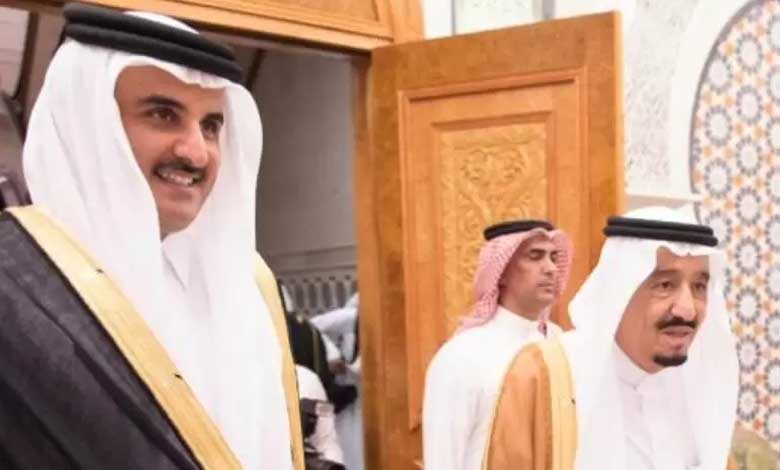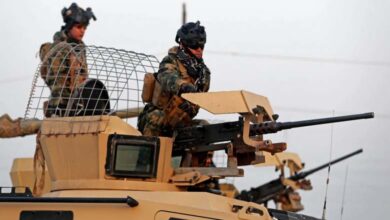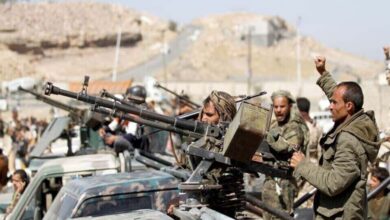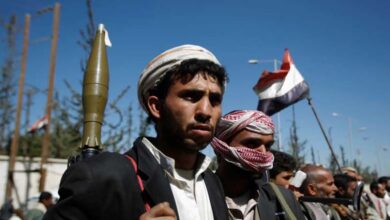The reconciliation of the Gulf would be achieved, and Qatar is committed to this reconciliation in this time? Experts and analysts respond

The works of the 41st session of the Cooperation Council for the Arab States of the Gulf was held in Al’Ula in the Kingdom of Saudi Arabia on Tuesday with the participation of the leaders of the member states and the Presidency of the Kingdom of Bahrain.
The Secretary-General of the Cooperation Council for the Arab States of the Gulf, Nayef Al-Hajraf, praised the agreement to open air space and land and sea borders between Saudi Arabia and Qatar that was declared yesterday by the Minister of Foreign Affairs of the State of Kuwait, Sheikh Ahmed Nasser Al-Mohammad Al-Sabah.
According to observers, the decision to open the borders and airspace between the Kingdom of Saudi Arabia and Qatar is similar in content to the crisis of the withdrawal of ambassadors from Doha, which is a diplomatic crisis that occurred in March 2014. It was actually a political demonstration by the Kingdom of Saudi Arabia, the United Arab Emirates and the Kingdom of Bahrain against the politics of Qatar, while the State of Kuwait and the Sultanate of Oman preferred to play the role of mitigation and reconciliation between the parties.
The countries of the Arab Quartet, and according to observers, have no assurance or guarantee that Qatar would respect the terms of reconciliation, whatever these conditions, especially ties with Turkey and Iran, funding of organizations terrorists in the region, intervention in the internal affairs of Arab countries, especially Libya, and the agitation of public opinion through means owned or directly funded by Doha, including the Al-Jazeera channel that Qatar uses as a media arm to spread discord within Arab societies.
Besides, and although the latest discussions on the participation of Egyptian President Abdel Fattah Al-Sissi, at the Gulf Summit as the summit’s guest of honor in a tradition followed by Gulf Cooperation Council states, President Egyptian was represented by Foreign Minister Sameh Choukri, who represented the Egyptian state at the Gulf Summit that the city of Al’Ula hosted.
As a comment to the new developments, Sherif Ahmed, a researcher specializing in Arab affairs, stated that the dossier of reconciliation between the Arab Quartet and Qatar would not finish at the summit, indicating that the Qatari media not yet stopped attacking Egyptian state institutions, and that does not mean opening the borders between the Kingdom of Saudi Arabia and Qatar and that ties have returned to 100%.
Sherif Ahmed also added: It is expected that the Arab Quartet countries would engage to their terms for reconciliation, and would not abandoned them, given that Doha has not shown concern on this reconciliation issue and has not stopped opposing these conditions in recent years.
For his part, Abdullah Abu Al-Olla, researcher specializing in international relations, indicated that it was not possible to speak of a global reconciliation in this summit for many reasons, the most important are: Qatar has relations with Turkey and Iran that have caused many problems for Arab countries, moreover to intervention in the internal affairs of the countries and the financing of armed terrorist organizations noting the Hezbollah militia in Lebanon, the Houthi militia and terrorist groups in Syria and Libya.
Abu Al-Olla added: Following the decision to open borders and airspace with the Kingdom of Saudi Arabia, Qatar would look to other conditions to complete reconciliation with Quartet countries, indicating that the media in Doha would resort to promoting Qatar’s injustice in the accusations against it since 2017.












